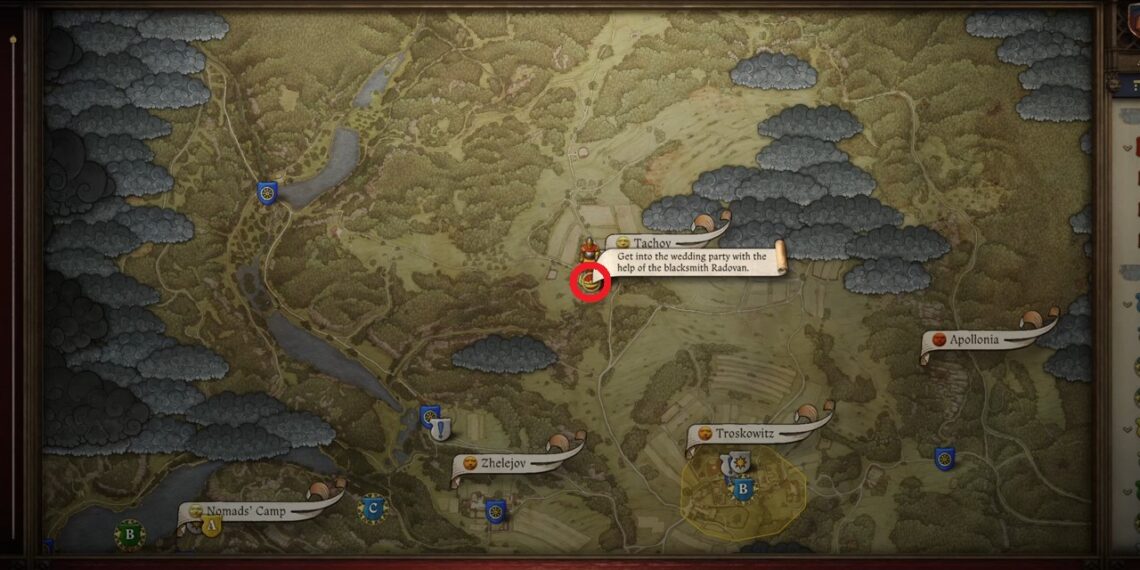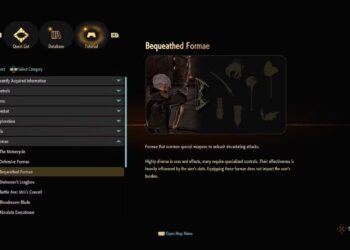Select Language:
Kingdom Come: Deliverance 2 allows players to craft their own gear, such as swords and tools, using blacksmithing. This process involves heating metal until it glows, shaping it with a hammer on an anvil, and then quenching it in water. Proper maintenance is essential to keep weapons in good condition and ensure their durability.
Blacksmithing becomes accessible early in the game when you locate the blacksmith’s son in Tachov, which is situated northwest of Troskowitz. In the town’s center, you’ll find Blacksmith Radovan, the first blacksmith you can interact with. Initiating a conversation with him will start “The Blacksmith’s Son” side quest, teaching you the basics of forging.
To forge a sword, gather the recipe and necessary materials, then approach any blacksmith’s anvil. Begin by heating the metal in a forge, which involves placing it there, moving it over the furnace, and striking it with the Q key or Right Trigger to heat evenly. The metal is ready when it turns a glowing straw color; then, you can inspect and transfer it to the anvil by pressing X or Square.
Next, hammer the heated metal to shape it, pressing Right Trigger or the left mouse button to strike. Move the piece up and down carefully to hit different spots, then flip it using the X or Square button and repeat. If sparks fly when you hit, it indicates a perfect strike—continue maintaining this rhythm, and Henry will whistle, signaling good timing.
Repeat the heating and hammering process until the metal cools. Reheat and work the metal as needed, and when the sword’s shape is finalized, reheat it one last time and quench it in water to complete the forging. For advanced tiers, aim for 52 full swings, reheat, and repeat on the opposite side, keeping the metal at white-hot with consistent, powerful strikes.
Each forged weapon has a quality level: Level 1 (low), Level 2 (medium), and Level 3 (high). Higher quality weapons deal more damage and fetch higher prices. Achieving top-tier quality requires higher craftsmanship skills and precise hammering techniques, although weapon requirements for strength and agility remain unchanged regardless of quality.
Weapons and armor can deteriorate after battle. Repairing them can be done via vendors or by using grindstones for blades and points. To sharpen a weapon, hold the Right Trigger at maximum pressure while repeatedly pressing the Left Trigger to spin the wheel. Find the correct angle where your blade sparks white—repeated attempts may be necessary, but this process restores the item’s full durability. Be cautious of black smoke, which indicates damage—adjust your angle immediately.
Repairing equipment grants experience points in maintenance, improving your overall blacksmithing efficiency. When Henry announces “Sharp enough,” it’s time to stop sharpening.
Armor, which cannot be crafted but can be purchased or looted, requires repair through specific kits: Tailor’s Kit for clothing, Cobbler’s Kit for footwear, and Armorer’s Kit for the entire set. Each kit has limited durability and needs replacement after use. Improving craftsmanship skills enhances your ability to repair, sharpen, and maintain gear more effectively.
To obtain crafting recipes or sketches—blueprints that detail the forging process—you can loot chests, complete quests, or visit blacksmiths and browse their Books tab. Hidden sketches can also be discovered in the environment, allowing you to craft unique items later in the story. Once acquired, recipes are accessible via the Crafting Menu or by clicking the Forge button.
Materials such as scrap metal, steel, iron, and fasteners are required to craft weapons. Purchase these from merchants or find them by looting chests, bird nests, or scavenging the environment. Gathering secret recipes and special materials can enable the creation of unique weapons.
Boost your blacksmithing skills by using items like Henry’s Quickfinger Potion, which temporarily increases craftsmanship and thievery by 8 points for an hour. You can obtain this potion from the Kuttenberg Apothecary or Aranka and craft it by collecting ingredients like Eyebright, Valerian, and Cobweb. Brewing involves boiling Eyebright and Cobweb, adding Valerian, and then pouring the potion into a vial. This potion allows you to forge higher-quality weapons even if your current skill level is lower.
Certain perks enhance blacksmithing: “Helping Hand” reduces repair costs, “Hardened Steel” slows weapon damage, “Locksmith” boosts lockpicking and thievery, and “Martin’s Secret” grants access to the highest quality (Henry’s Quality) weapons, which cannot be obtained in any other way. Improving your Craftsmanship skill unlocks these perks and enhances all aspects of blacksmithing and equipment maintenance.







